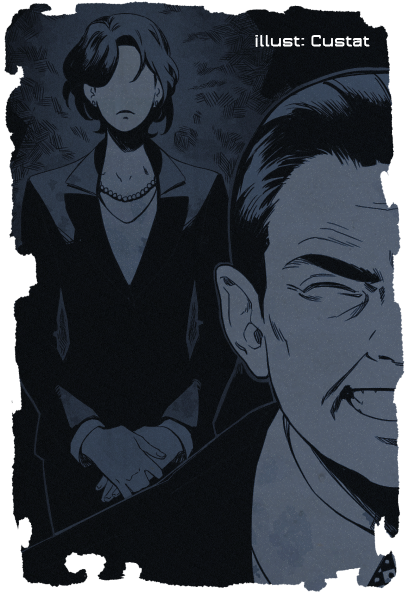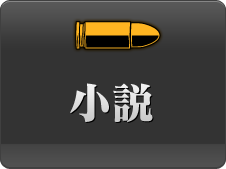#64: SHADOW
“I’m telling you, mom, I don’t need all these vegetables.”
There was a box full of too many vegetables in front of Eriko, sent to her from her mother.
“Oh, don’t go saying something like that, Eri. There’s no such thing as too many vegetables.”
“I can’t eat them all at once. They all expire way too quick, too… I guess I’ll make some curry.”
“Curry is the essence of life, dear.”
“Yeah, yeah.”
“Are you enjoying yourself in Osaka? Don’t want to come home just yet?”
“Mom, don’t go baiting me back to that farm.”
“Osaka is just too crowded, you know? When your father was younger we spent some time there while he tried to establish a business, but we figured the farm is all we really know. There’s no need to chase dreams that don’t exist in Osaka.”
Eriko could not believe how little and how explicitly her mother did not care for her daughter's dreams. To her, it seemed, this moment in Eriko's life was exactly that: a moment, which would pass and she would return to the farm and tend to rice paddies until she drew her final breath.
"You know what, mom?"
"What, honey?"
What Eriko meant to tell her mother was that she would never return home, never step foot on that farm again, and tell her that if she loved her she would get on a train and see her in Osaka, because she'd rather endure one hundred hours of her nails being slowly torn off before she had to touch another grain of rice again. But, the sincerity in her mother's voice when she called her 'honey' was simply too devoid of malicious intent for her to subject her mother to such vulgarities. It wasn't that her mom didn't believe in her--it was that she simply did not know any other life. Eriko, however, was completely logged in to the world around her, and had no intentions of coming back.
"Nothing. Thanks for the vegetables." She hung up. She was running late, anyway--off to see a presentation by Alex Coleman, then president of the US, discussing the status of cybercrime and how international relations are necessary to better manage it. These sorts of dry topics that seemed to be in the mouths of all politicians in those days. She considered Coleman, at least, to have a modicum of sincerity when he discussed these things. A middle-aged man can only be so hip, you know?
Eriko put on the one suit in her closet, wrapped in the plastic cover of dry cleaning from the last time she had worn it to some obscure formal event that required it. It was not clothing she put on by choice. Black, simple, effective--barely any different from the discount brands at wholesale stores.
The auditorium was packed--foreign and local media at the front, and students, ranging from those who could speak English to the illiterate that were simply there to see a celebrity, sat in the back. Eriko had brought David along to further convince him of her position on cybercrime. Since their last meeting they had seen each other an adequate number of times to be considered friends, and she had a strange magnetism to her that David's dorm members were beginning to comment on his continued absences. Their interactions were mostly the same but always interesting--an ample suggestion for dinner after a lecture punctuated by alcoholically-induced rants turned debates and then soft silences where they appreciated each other's presence. It was a careful kind of relationship, where they both knew their boundaries--David, after all, was a temporary visitor; better not to get involved more than this.
Coleman came out to thunderous applause. He had risen to some popularity on the newer online forums that replaced the pre-Pluto's Kiss ones, but they too had become sanitized somewhat by ISPs that now had a greater set of tools at their disposal for monitoring the going-ons of the Net. Probably, Eriko thought, it was just that any criticism of him was being heavily moderated, lest it be considered a threat (and most things remotely negative were). Tired, she was so tired, the overwhelming sadness that the genuine human connections of the Net had begun to be co-opted by capitalists who sought to twist those venues into revenue. By the time Coleman had entered a recursive loop, simply rephrasing the same ideas over and over to bury them deep into his audience's mind, she dozed off, and when she had woken up and come back to her senses she could hear David's voice.
"Where exactly are we going?"
"I told you. We're going out to lunch."
"But it's half past three."
"Lunch is lunch, David."
They had sat on the Sakaisuji line for almost an hour now, and all Eriko would tell him is that they were off to meet a friend of hers. She said he had come from out of town and was very busy, so they couldn't meet at a more traditional lunch time. David was very particular about eating between the hours of 12 and 2. Eriko was more of the "all food is food" type.
Disembarking at Shinsaibashi, Eriko and David had entered Amemura, a quaint little area of Osaka known for its crop of American businesses (hence Amemura, meaning 'American Village').
"Here? I mean I'm always down for a burger, but why'd we come all the way out here?"
"My friend's preference. I'm not big on American food."
"Is your friend into Western culture, then?"
"You could say that."
They walked down some streets until they came to a quaint little burger joint with a neon sign out front. Also featured out front were two suits, equipped with sunglasses and a wire in their ear.
"What's with the men in black?"
"They're with my friend."
Suddenly David realized that this friend was not just any friend. When they walked in, he felt his stomach drop. Sitting at the table was Alex Coleman, the president of the United States.
He stood up, smiled, and waved the two over to his table. The rest of the restaurant had been emptied out, and the reservation had been made just for them.
"Thanks for coming Ms. Fujioka," said Coleman. "And you are?"
"David Steinberg, uh, sir."
"Mr. Steinberg," he said, shaking his hand. "Have a seat!"
David sat straight down, falling into his chair, while Eriko gracefully took her seat. She noticed a woman dressed in a blue pantsuit standing behind Coleman, staring off at nothing in particular. One hand in the other, she was monolithic.
 The president, meanwhile, was, for lack of a better term: American. David had seen him in countless photographs and news reports, but in the flesh he seemed like any regular middle aged man. His hair was slicked back, the suit seemed like he was born in it, and the wrinkles around his eyes showed his penchant to laugh at silly jokes like any other Alex of the United States.
The president, meanwhile, was, for lack of a better term: American. David had seen him in countless photographs and news reports, but in the flesh he seemed like any regular middle aged man. His hair was slicked back, the suit seemed like he was born in it, and the wrinkles around his eyes showed his penchant to laugh at silly jokes like any other Alex of the United States.
The waiter came over, and Coleman ordered a burger and fries. "Breakfast of champions," he said, but it was far too late to make such a joke. Eriko ordered a brisket, and David, flipping through the menu to no end, eventually landed on a burger as well. "Breakfast of champions," Coleman said again.
"Well, I must say I'm quite surprised with how young you are, Ms. Fujioka! You come across as much older in your work."
"My mother always says I have the vocabulary of a cranky old lady." Whenever Eriko spoke English she seemed almost like a stranger to David. Or rather, while they would occasionally speak English together, as soon as alcohol entered their system their discussions would become exclusively Japanese, and that was always when the "real" Eriko came out--the one who really spoke her mind.
"Oh, my mom used to tell me the same thing. I still have the mouth of a sailor--I have to keep it under check for the public, you see. Otherwise she'll get on my case about it," he said, gesturing to the woman behind them. "Anyway, Ms. Fujioka, what did you think of the talks?"
"To be frank, Mr. Coleman, I don't think any of it reached the heart of the matter."
"Oh? Do tell."
"It seems to me that world leaders only like to talk about the internet in platitudes. Do you mind if I speak plainly?"
"Please. I can't stand the nonsense these bureaucrats expect me to speak."
"Thank you. To put it plainly: there's no maturity to it. What I mean is, in the 1990s the Net was treated like a fad, and I don't think the people in charge have fully left that mentality. Events like Deadly Flash forced it to be taken a bit more seriously, but there's still a pervading feeling of 'this too shall pass,' which, frankly, is not the case."
"That's fine, Ms. Fujioka, and I agree. The WNC, as I see it, is a makeshift organization made in the wake of Pluto's Kiss anyway. To tell you the truth, most of the delegates I speak to there don't know a computer from a calculator." Coleman said this with a laugh. Eriko smiled, but it was the kind of smile David had seen her give professors she didn't care for or guys trying to pick her up. In other words: it wasn’t genuine.
David felt out of place. Here he was sitting in front of the president of his home country, the supposed most important man in the world, and he was dressed in a ratty sweater. Surreal as it was, the reality of it was chimed in with the smell of burgers wafting over to the table, the waiter nervously rattling plates--this was the most important guest they'd ever had, whatever that means.
"Thanks a million," said Coleman. "I'll leave a nice tip." But the president didn't know that tipping wasn't a custom in Japan. No one told him.
They began to eat, and as he shoved fries into his mouth, Coleman continued, "Like I was saying, the WNC is no good, future-wise. I'm already thinking about proposing a new sort of committee, or at least drafting one. But those old men'll never accept something like that until somethin' truly awful happens--probably need another Pluto's Kiss for that. In the meantime, all I can do is weigh in on the drafting of laws. Your work, Ms. Fujioka, that paper you titled something to the effect of "Downloadable Crime," if I'm not mistaken, was pretty seminal stuff. Youthful and powerful, but with that comes a sense of immaturity. Now I might not think so, but others on that commission would. So I'm gonna ask you plain and simple today: what do you propose we do?"
"My proposal is simple, Mr. President. Repeal the ALTIMIT law."
The woman standing behind the president finally shifted her gaze from the endless void to Eriko's face. She put a hand on the president's shoulder and began to speak. "If I may, Mr. President." She focused her gaze on Eriko, and said, "What you are proposing is nothing next to ludicrous. The ALTIMIT law has been the most successful measure born out of the World Network Commission's meetings. It is the safest OS on the market and is sanctioned by the UN as the world's official operating system. To denounce it would be to denounce the very foundations of modern computing."
"Now now, Tabitha..." the president patted her hand on his shoulder as if to ward her off.
"It also happens to be the only OS on the market."
"And in that hegemony we can ensure its safety."
"Look, miss..."
"Knox."
"Ms. Knox." The name registered in Eriko's head. "Wait--Knox, as in Tabitha Knox?"
"Is there anybody else with this name worth mentioning?"
"I read the papers. You're the one who came up with this plan to begin with, right? The 21st Century Hypernetwork Plan. Are you insane?"
"Hey, Eriko..." David put a hand on her shoulder that she immediately shrugged off.
"Are you implying something less than savory about my character, Ms. Fujioka?"
"No, I'm only reporting my observations."
"I would be more than happy to hear your criticisms in a more professional tone."
"I'm sorry, but I'm really not the professional type. This suit is probably my limit in paying attention to things like that. Just talk to me like a person."
"People should be respectful."
"Are we here to debate etiquette? Politicians are always like this. You don't know what it's like to talk to people, and I mean real people. The kind that deal with the brunt of every mindless decision you make like this ALTIMIT deal. And the second I speak to you as my own equal? Professionalism. Etiquette. Social niceties that exist to protect you from criticism. So, Ms. Knox, I ask you to show me the same amount of immense respect I'm giving to you now by being my pure and honest self and not an amalgamation of honorifics."
Coleman stayed silent. He continued to eat his meal, as this was exactly what he had come here to see: Eriko Fujioka in all her crudity. The thesis she had written made waves in the upper circles of the WNC that had actually cared about what they were doing. It had been published by her professor's request in one of the journals that was the regular reading material for the few who maintained a semblance of passion towards their positions as men who supposedly "protected" the Net. Coleman was one such man--and one of the few who had recognized his and his colleagues flaws.
"Fine," said Tabitha. "Fine. I apologize for not meeting your standards of suitable rhetoric for everyday conversation. Because I exist in these spheres, you might understand how it is difficult for me to speak in the same register when this is the world that makes up my everyday conversations."
"And I recognize that. But I can't stand this rhetoric being used as recursive shields."
"I will be clear, or at least as clear as I can be: the ALTIMIT law cannot be repealed. It has already gone into effect, and thus it is too late."
"A computer is not a finite object. In fact, it's quite the opposite. You could install any OS you like."
"Economically, the monopoly of ALTIMIT provides safe management for entities like our WNC to make sure cybercrimes do not advance to uncontrolled stages like Pluto's Kiss or Deadly Flash a second time. Do you remember Pluto's Kiss, Ms. Fujioka?"
"All too well." In fact, Eriko thought about it everyday.
"Then you should also remember the fear felt around the world. Consider my feelings, if you would like to approach this as personally as you desire all people to be: I was in the room when it seemed as if we faced total nuclear annihilation. Can you imagine, then, Ms. Fujioka, why I personally would be interested in the total and absolute prevention of such fear again? In terms of a purely human approach--that I should protect myself, personally, from such fear to be inflicted upon myself again."
"I understand that. I sympathize. I empathize. I am a human being. However--it's because I'm a human being that I understand our huge margin of error; that we're not equipped to think in absolutes. As a human being, I can deduce that what the WNC has in mind will not work out. I'm not coming at this from an economic standpoint or anything shortsighted like that. I mean this from a purely sociological and structural perspective. The internet is a nation-less place—we should be celebrating that fact. By introducing things like the ALTIMIT law, we’re putting corporations in the place of nations. They encroach on our freedoms in the pursuit of something as intrinsically worthless as money. The internet, for better or for worse, should be the information highway where all information is free and without limit. I denounce the law because I have the freedom to do so. I don't need a better reason than that."
David was shocked with the confidence Eriko was speaking without even a single drop of alcohol in her.
"It is ideas like 'freedom,' and the recklessness that comes with it which allowed Pluto's Kiss to occur. There is no violation of users’ privacy or freedoms under ALTIMIT. If the system is closed from the top down, then we know what happens at the very bottom."
"If the system is closed from the top down, then there's no room to breathe. As I understand it you drafted the ALTIMIT law with Mr. Coleman, is that correct? You wouldn't happen to have any financial investments in ALTIMIT, would you, Ms. Knox?"
"Let's all settle down now. We didn't come here to fight, Tabitha. We came here to talk. Ms. Fujioka here is the future of the world--we should be welcoming her ideas."
There was a small pause. The president, as if now realizing that there was another person at the table, turned to David. "Mr. Steinberg, was it? Tell us, what do you think about all this?"
Suddenly all eyes were on David. Even though Tabitha had returned to staring at the void, he could feel her eyes on him.
"Well, I..."
Of course, David was nervous. Months of living in Japan as a minority had prepped his confidence, provided him some semblance of separating himself from the situation around him to the one occurring in tandem with him. He cleared his thoughts, and began to speak.
"I think Eriko is right. What the world--no, what the Net needs is not totalitarian control, but mutual understanding between users and providers. If we can't have that, if those providers are not willing to let us 'in,' so to speak, then the entire basis of computing must be reevaluated. There should be rulers, yes, but plural--not the singular."
David was a little bit shocked at how articulate he'd been. Eriko was smiling, her real, full smile, and it filled him with warmth.



